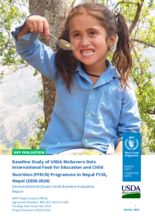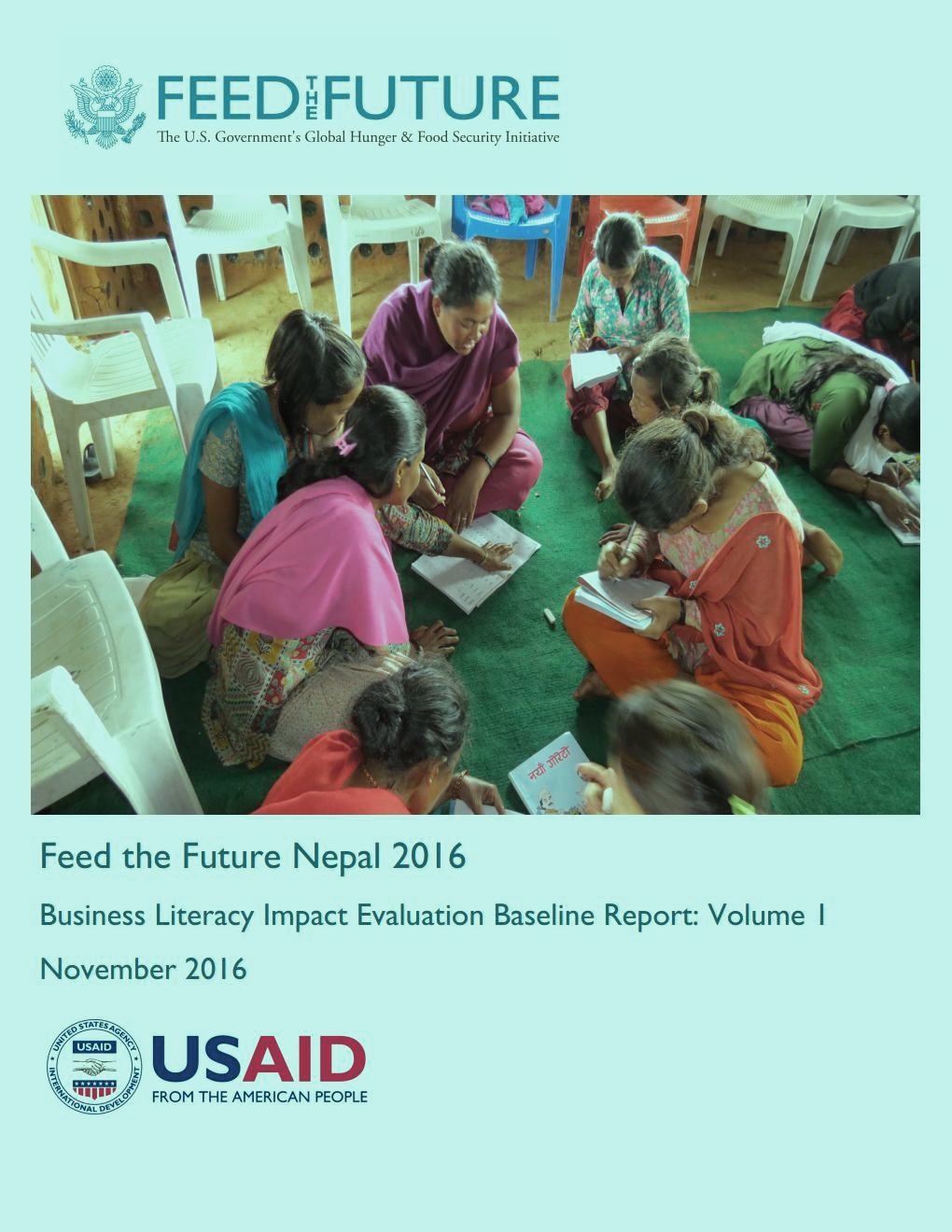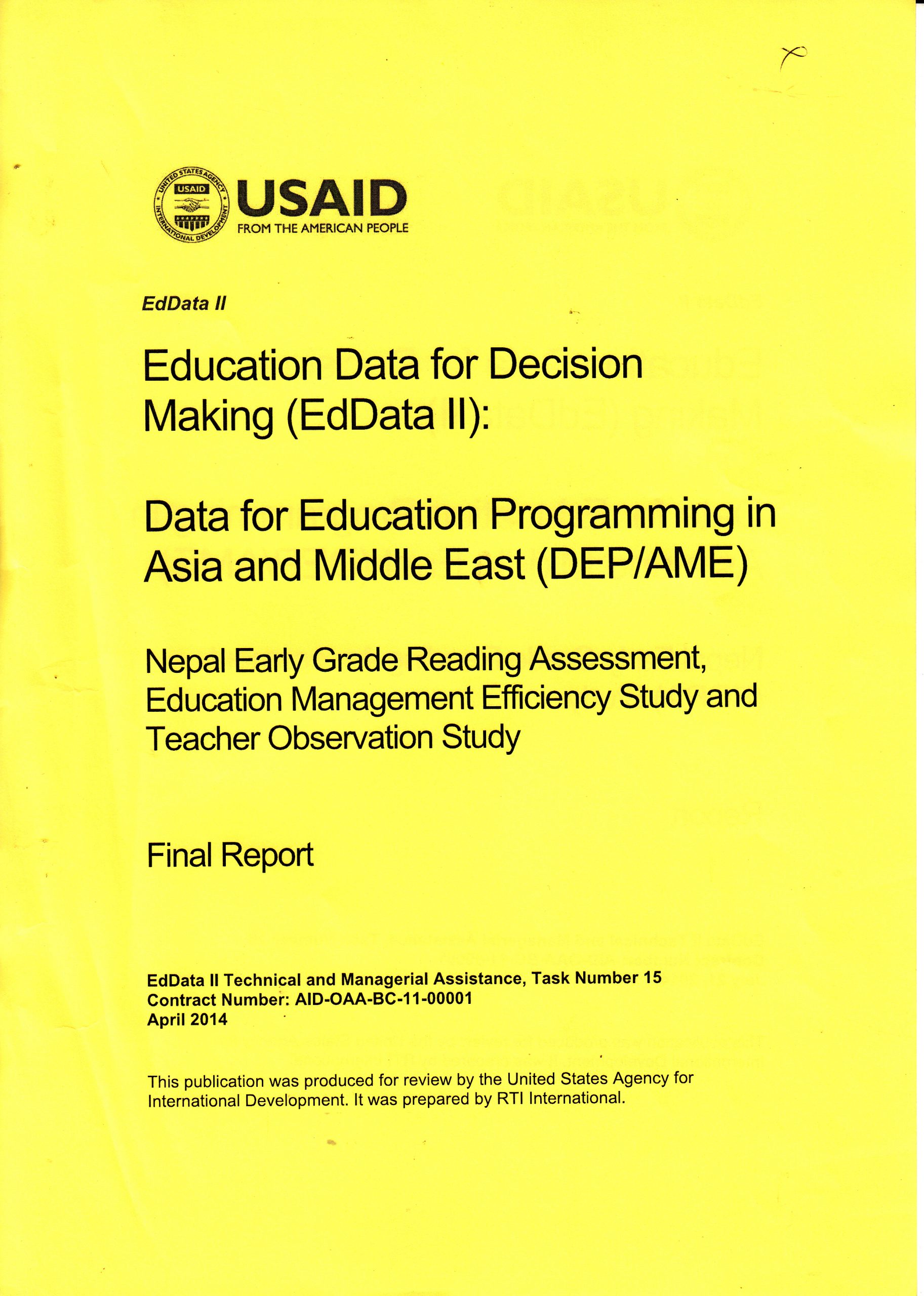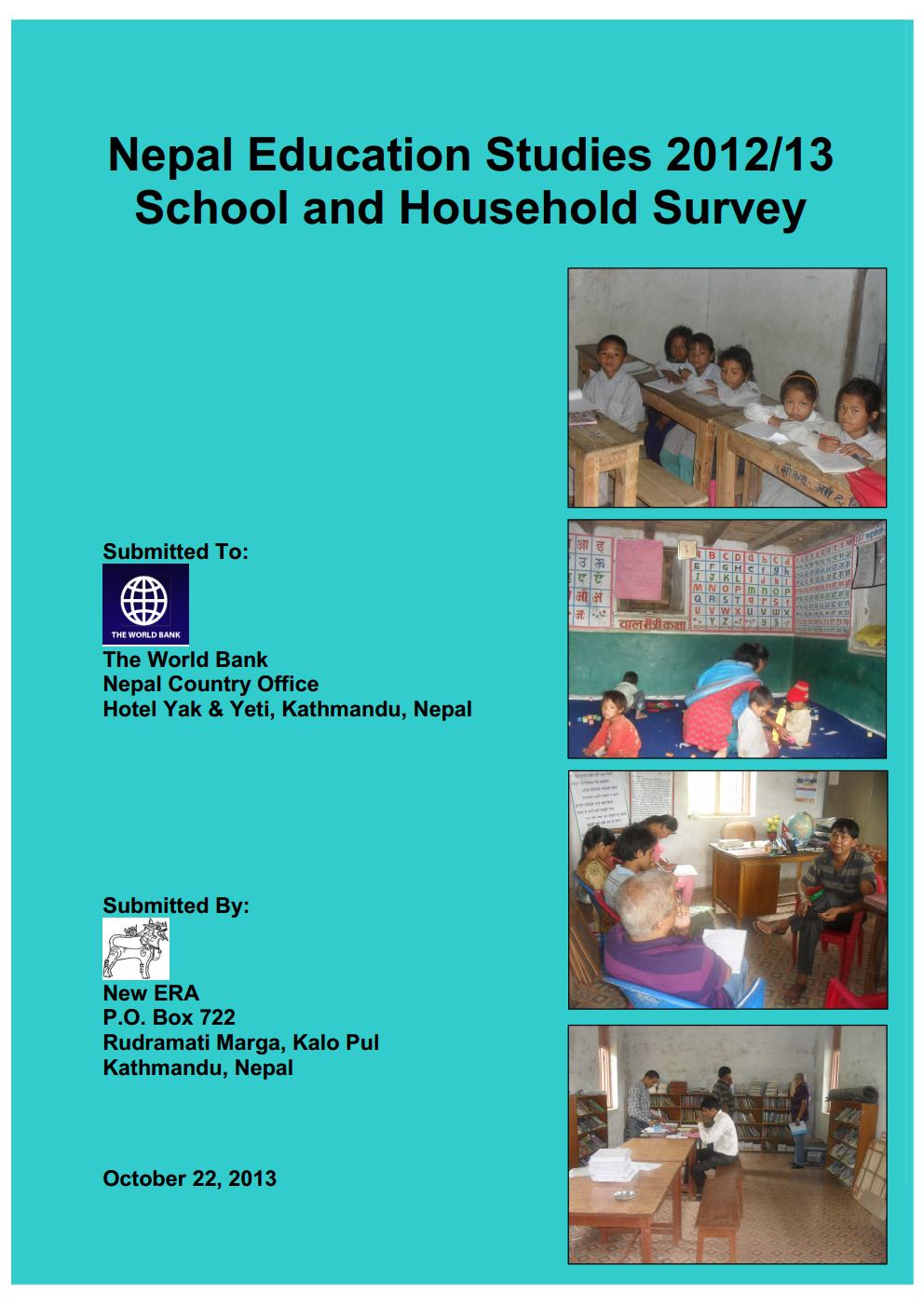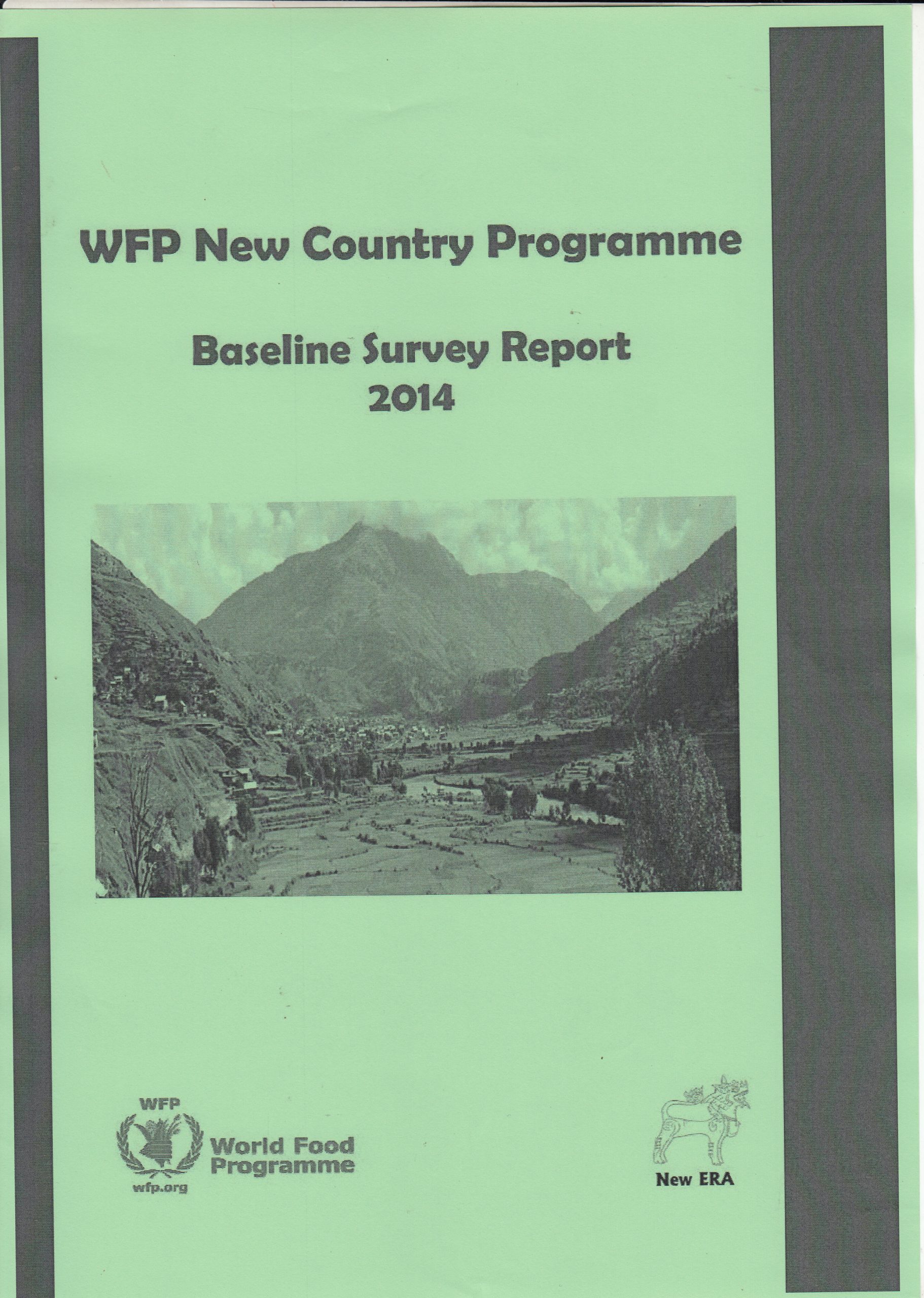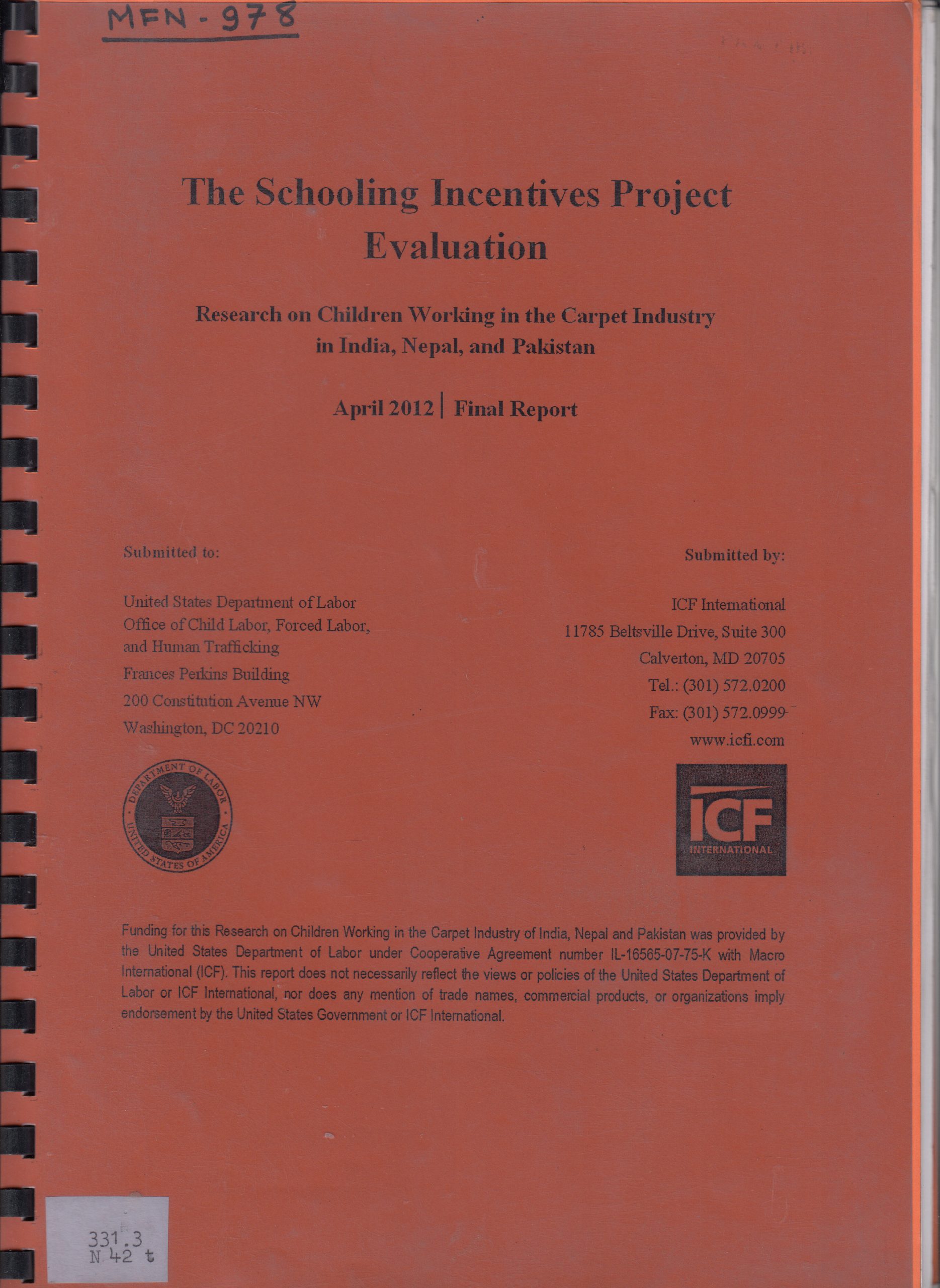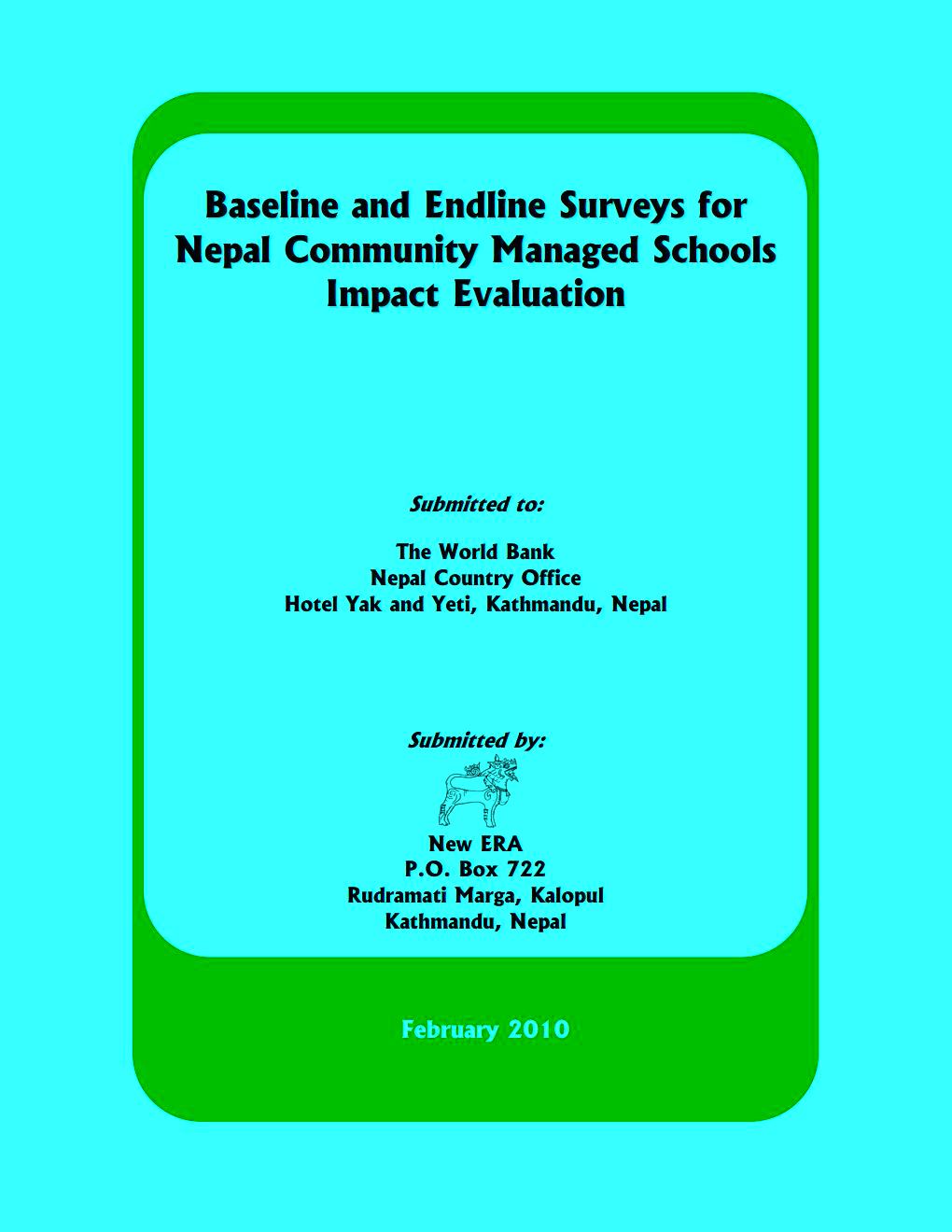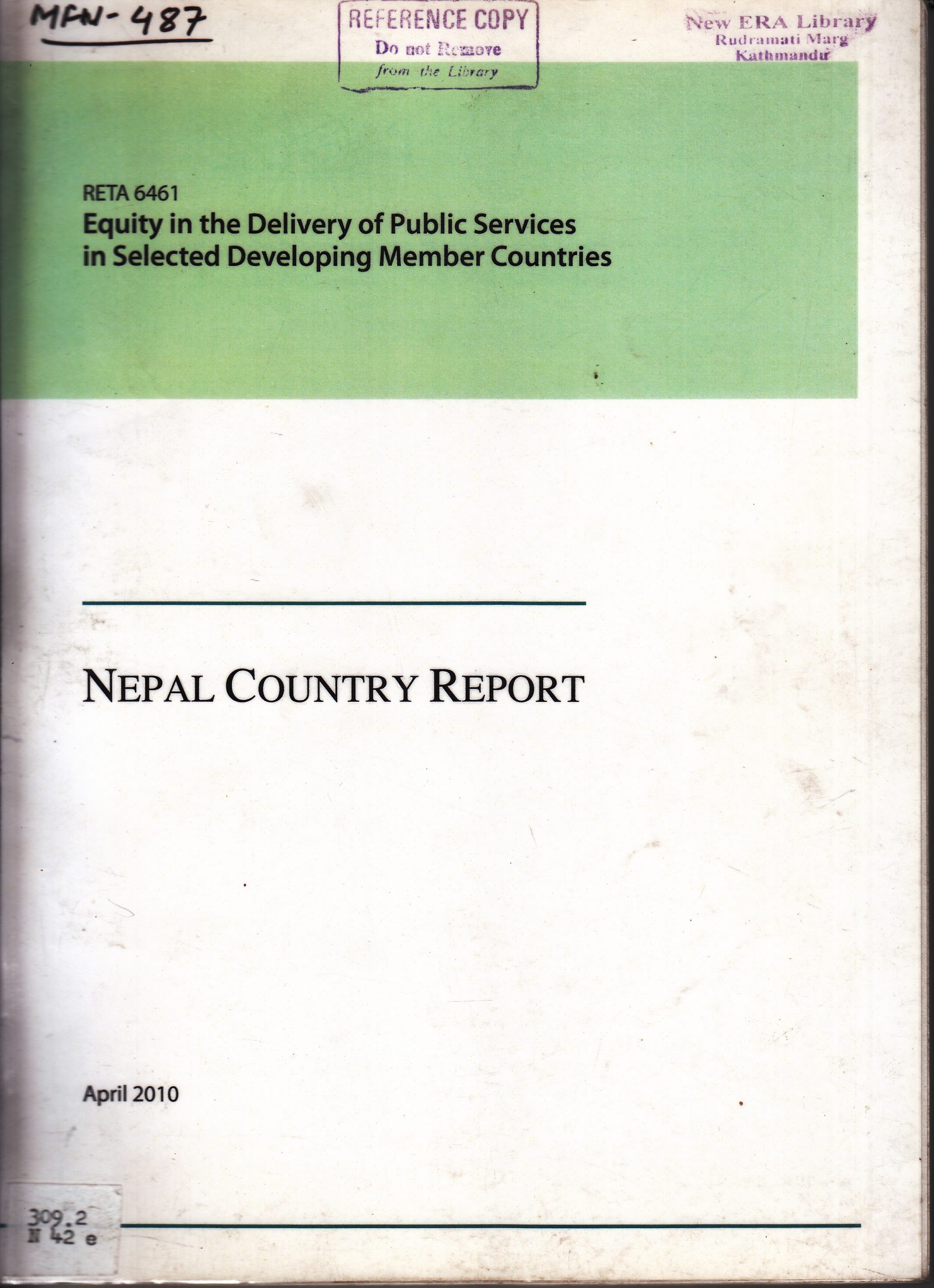The objective of this survey was to establish baseline indicator for (PMP) Performance Monitoring Plan. The study provided a situational analysis before the project begins, and the context necessary for the midterm and end-line evaluations to assess the project’s coherence, relevance, effectiveness, efficiency, sustainability, and impact. The study also explored the factors contributing to the literacy achievement of school-age children besides school meals and standard academic curriculum.
Report Type: Education
Endline Survey of Government Driven Evaluation to Improve Student Learning in Nepal’s Secondary Schools
This study was to assess the changes of the impacts on teacher knowledge, attendance and pedagogical practices after the implementation of new teacher training initiative of Nepal Government. The study also assessed the student learning from the new teacher training initiative and theory to change. The study focuses on Mathematics, Science, English, and Nepali language learning outcomes of student in grades 9 and 10 in schools. A sample of 3200 respondents from 204 schools of 16 districts was selected for the study purpose.
Government Driven Evaluation to Improve Student Learning in Nepal’s Secondary Schools – Baseline Survey
Government of Nepal has initiated an effort to improve school quality by revising teacher training curricula, mandating more in-service training for teachers and strengthening teachers’ accountability for applying new methods in their classrooms. This study was designed to establish baseline indicators of the impacts on teacher knowledge, attendance and pedagogical practices and student learning of the new teacher training initiative and theory to change. The study focuses on Mathematics, Science, English, and Nepali language learning outcomes of student in grades 9 and 10 in schools.
Feed the Future Nepal 2016: Business Literacy Impact Evaluation Baseline Survey
The Business Literacy Program (BLP) is a component among the Feed the Future (FTF) strategy. The overarching objective of BLP was to contribute toward FTF’s interest in increased resilience of vulnerable populations through training designed to enhance key skills in literacy and innumeracy, nutrition knowledge, life skills, entrepreneurship and access to finance among women, youth, disadvantaged castes, and ethnic minorities of 20 focus districts. This study was conducted to measure the impact of the program. The study assessed knowledge, skills and attitude and behaviors of beneficiaries of the program.
Ed Data (II), Early Grade Reading Assessment (EGRA), the Education Management Efficiency Study (EMES) and the Teacher Observation Study
Ed Data II is a world-wide program funded by the United States Agency for International Development (USAID) to support the development and use of cost-efficient survey-based information on key education issues. This ‘Early Grade Reading Assessment (EGRA) and the school-based Education Management Efficiency Study (EMES) and the Teacher Observation Study (TOS)’ in Nepal was conducted New ERA jointly coordination with RTI and Department of Education (DOE) of Nepal. The main purpose of the survey was to support the development and use of cost-efficient survey-based information on key education issues in Nepal. The study identified the responsibilities of Ministry of Education, and District Education Office.
Nepal Education Studies 2012/13 – School and Household Surveys
This baseline and validation surveys was to generate high quality educational data which will test the reliability of the current administrative data collected through Flash Report Form. It also provides information on schools and also gives additional information linking school, teachers and households’ characteristics. Another aspect of this comprehensive survey was the Public Expenditure Tracking Survey (PETS) and Quality of Service Delivery Survey (QSDS). The study assessed flow of fund in education sector, the composition of spending, and management of resources; and their relationship with educational outcomes. It will help to improve management and composition of spending in the education sector to improve learning outcomes.
WFP New Country Program (2013-2017) -Baseline Survey
A five-year new country program 2013-2017 of World Food Program (WFP) is implementing in collaboration with the consortium of partners to enhance the resilience of vulnerable communities prone to shocks, and foster the food security and nutrition of vulnerable populations in Nepal. This survey was designed to obtain the baseline data on food security, disaster risk reduction, vulnerability, nutrition, school enrollment and attendance at the district level. The study assesses nutritional impact and anemia among women and children, child feeding behaviors among women; monthly income and expenditure; drinking water in local primary schools; and community awareness on health and nutrition.
The Schooling Incentives Project Evaluation
Schooling Incentives Project (SIP) was implemented under the ‘Research on Children Working in the Carpet Industry in India, Nepal and Pakistan’ with funding of US Department of Labor. The main objective of the project was to encouraging school enrollment and attendance and reducing child labor especially in the carpet sector. This Nepal chapter study of SIP was to improve the understanding of importance of schooling costs and available employment opportunities for child labor and schooling decision among the children associated with carpet producing establishments in Nepal. The study assesses the impact of educational initiatives aimed at children vulnerable to child labor in Nepal.
Baseline and End-line Surveys for Nepal Community Managed Schools Impact Evaluation
The Community School Support Project (CSSP) was initiated the government in the start-up of this decentralization initiative in the education sector through a smooth transfer of the management responsibilities to the school communities to improve access and quality of basic and primary education for children especially of the socially marginalized groups. A large number of schools in different districts have come under the scheme of devolved public school management responsibilities to local communities since the implementation of CSSP in 2006 under the World Bank funding. This study was to measure the changes in public schools on the effectiveness of schools in terms of a number of indicators including students learning achievement over a period of two years spread between a baseline and end-line of survey. The study also assesses the access and equity, efficiency and school governance.
Equity in the Delivery of Public Services in Selected Developing Member Countries: Nepal Country Study
This is the Nepal chapter study carried as a part of the Asian Development Bank’s regional technical assistance (RETA) project on ‘Equity in the Delivery of Public Services in Selected Developing Member Countries’. The main purpose of this study was to fill the gap with an in-depth analysis of the issues associated with equity, including its concept and measurement, policy practices and implications. The study assesses equity in health and education services in Nepal to better understand the barriers and constraints to their equitable provision. The study has used qualitative techniques to gain deeper insight in the various issues related to equity in the service delivery.



